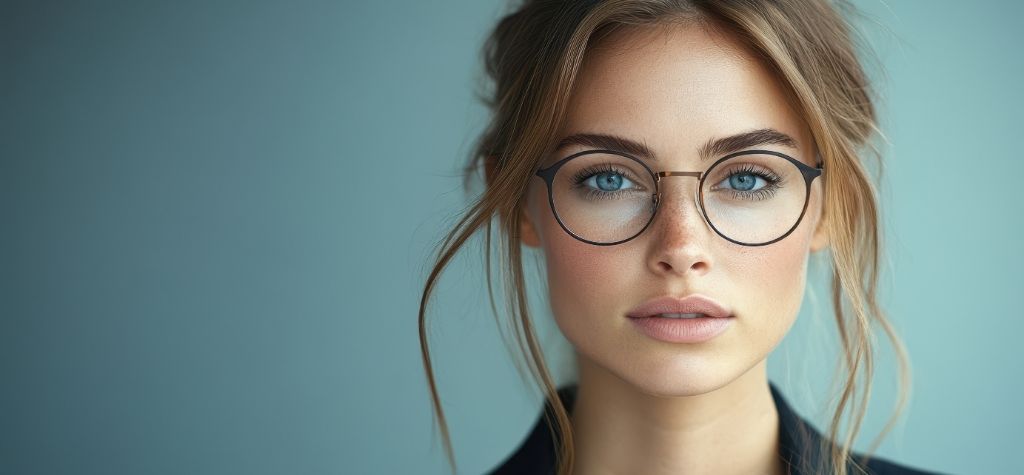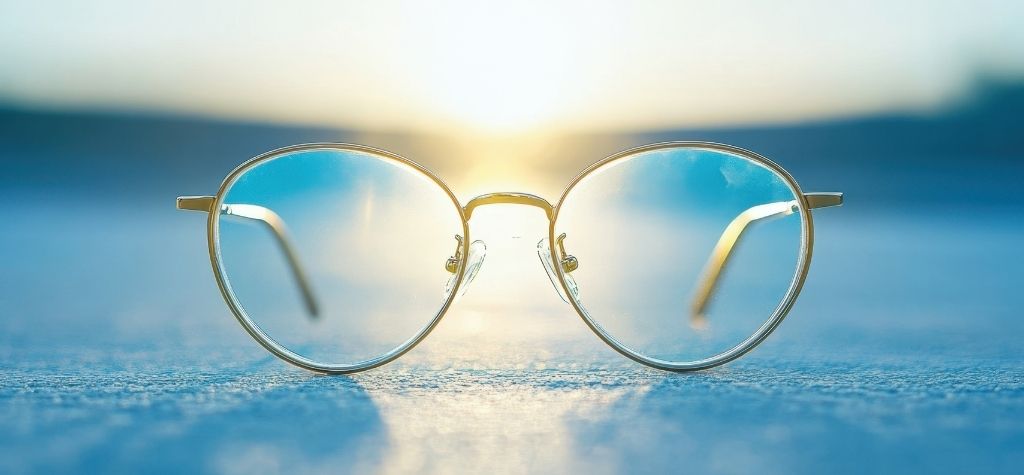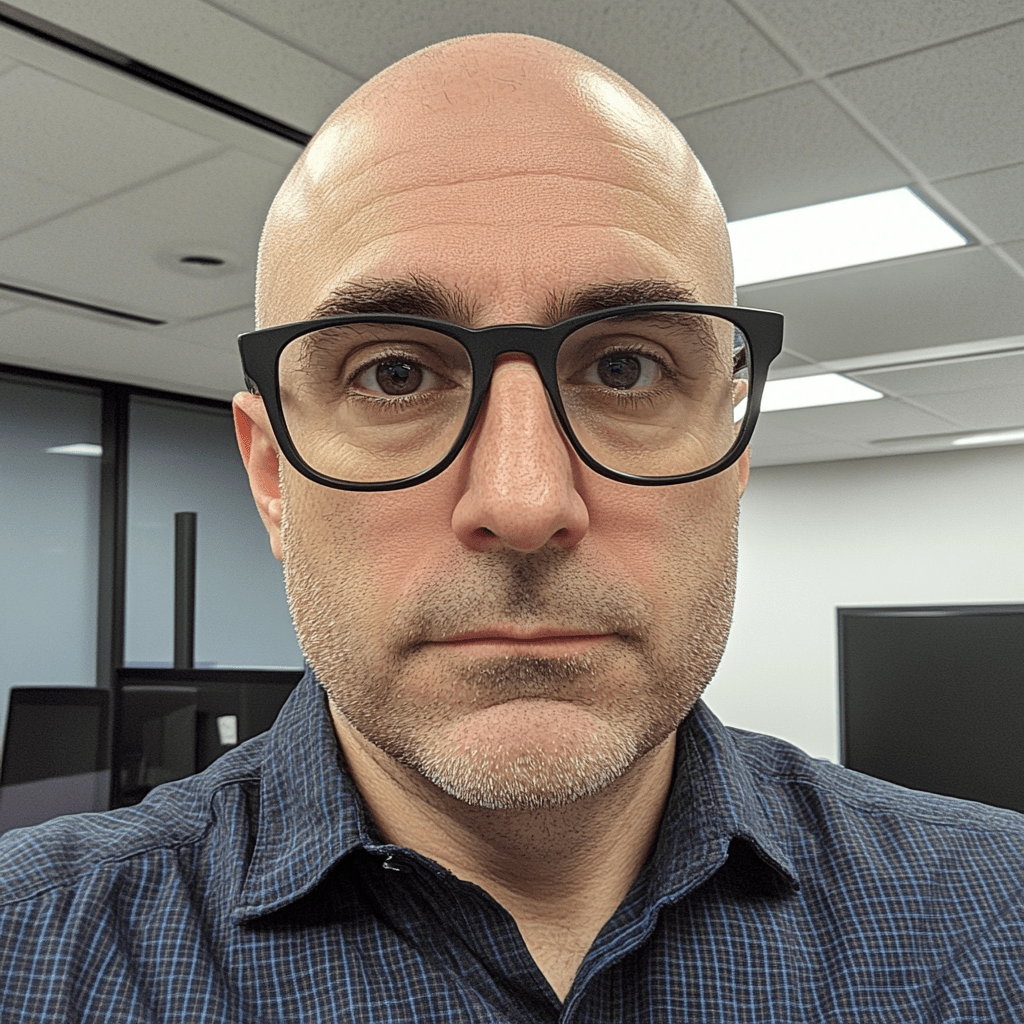Why Do Glasses Matter Beyond Vision?
Glasses aren’t just about sharpening what’s in front of your eyes—they shape how we see ourselves and how others see us. Slip on a pair of frames and suddenly you might feel smarter, more stylish, or even more confident. That’s not just in your head; glasses carry a lot of social and psychological weight. They influence first impressions, professional opportunities, even your sense of identity.
Glasses and Self-Perception: Seeing Yourself Differently
Boosting Confidence
For many people, putting on glasses feels like flipping a switch. They add polish to your look instantly, making you feel more composed, stylish, and put-together. Frames can become part of your “armor” in social situations—just as makeup or a sharp suit might. Some even report feeling more assertive in conversations when wearing glasses, almost like stepping into an upgraded version of themselves.
The “Smart” Stereotype
The stereotype that glasses make you look smarter isn’t just a cultural quirk—it’s rooted in associations we’ve built over centuries. Glasses have long been linked to reading, study, and academic work. Even today, when people see glasses, they subconsciously connect them with focus, intelligence, and learning. It’s why glasses are often used in advertising and movies to signal someone is the “brains” of the group.
Society’s Take on Glasses: From Nerdy to Chic

Stereotypes Over Time
Once upon a time, glasses meant “nerdy” or “uncool.” Think of the classic high-school movie trope: the kid with thick lenses, teased for being a bookworm. Fast forward to today, and that image has flipped. Glasses are now a fashion statement—just look at brands that release seasonal collections the same way clothing lines do. What was once an unfortunate necessity is now a coveted accessory.
Media Influence
Media has done a lot of the heavy lifting in this transformation. Harry Potter made round frames magical. Clark Kent’s glasses were the thin disguise between mild-mannered reporter and superhero. Social media influencers flaunt eyewear like jewelry, pairing bold frames with everyday outfits. As a result, glasses are no longer about correcting vision alone—they’ve become icons of style.
Glasses at Work: The Professional Power of Eyewear
Authority and Trust
In many professions, appearance influences credibility. Glasses subtly suggest seriousness, responsibility, and reliability. When you walk into a meeting or interview with frames on, you project authority before even speaking. That’s why professionals—from lawyers to doctors to CEOs—often favor them in high-stakes settings.
Career Boost
Believe it or not, glasses can sway hiring decisions. Research shows that candidates wearing glasses are often perceived as more detail-oriented and competent. For jobs requiring focus and intellectual skill, this perception can give you an edge. In essence, glasses are more than a visual aid—they’re a career tool.
Social Interactions: How Glasses Shape First Impressions
Instant Impressions
Glasses are among the first details people notice. They frame your face and play a huge role in your overall vibe. Sleek metal frames might make you look serious and professional. Chunky colored frames can read as bold and creative. Light frameless glasses might come across as understated and approachable. Without saying a word, your eyewear helps write your social script.
Social Dynamics
Glasses can also influence group identity. Ever seen how certain frame styles are tied to certain subcultures? Think hipster thick-rimmed specs, minimalist wire frames in tech circles, or artsy oversized frames in creative spaces. They become shorthand for the “tribe” you identify with, signaling your interests and personality to others.
Fashion and Identity: Expressing Yourself Through Eyewear

Style Statement
Frames are now an extension of fashion. Just like shoes or handbags, they reflect your personality. Bold red frames can scream confidence and flair. Neutral, minimalist designs may suggest someone who values subtle sophistication. Owning multiple pairs allows people to match eyewear to moods, outfits, or events—shifting their identity with ease.
Celebrity Influence
Celebrities have turbocharged the eyewear-as-fashion movement. Think Elton John’s extravagant stage glasses, Steve Jobs’ iconic rimless specs, or Zendaya turning frames into a red-carpet accessory. When celebrities embrace eyewear as part of their signature style, millions follow, cementing glasses as an essential piece of the fashion puzzle.
Beyond Glasses: The Psychology of Contacts and Surgery
Switching It Up
Transitioning from glasses to contacts or opting for LASIK isn’t just about vision—it’s about identity. Contacts can feel freeing, letting your face appear unobstructed, while LASIK can symbolize a fresh start. But some people miss the unique “character” their glasses gave them. It’s a trade-off between convenience, aesthetics, and self-expression.
Confidence Comparison
For some, glasses are confidence-boosting—like a stylish extension of themselves. For others, they feel restrictive or even make them self-conscious. Meanwhile, contacts or surgery might liberate someone who never liked how frames looked on them. Ultimately, the choice is deeply personal and tied to what makes you feel most authentic.
Glasses in Different Cultures: More Than Meets the Eye
Cultural Perceptions
Glasses don’t mean the same thing everywhere. In Japan, for instance, they’re sometimes seen as a mark of diligence and discipline. In parts of Africa, they might be viewed as a sign of education and wisdom. In Western fashion circles, they’re increasingly playful and experimental. Culture adds layers of meaning that go far beyond vision correction.
Age and Gender Roles
Age and gender also shape how glasses are perceived. For children, they can be a symbol of maturity. For women, glasses can swing between being seen as “serious” or “sexy,” depending on style and context. For older adults, glasses are often a natural part of aging, but stylish designs are helping shift the narrative away from “old-fashioned” toward ageless chic.
Kids and Glasses: Growing Up with Frames

Confidence Boosters
For kids, glasses can be a turning point. The right pair can make them feel unique, stylish, and proud. But the wrong experience—like teasing at school—can knock their confidence. That’s why involving kids in choosing their frames is so important. When they love what they’re wearing, it shows in their self-esteem.
Peer Dynamics
Glasses can change how kids are perceived in friend groups. Sometimes they’re admired as a cool accessory; other times they’re the target of jokes. Parents and teachers play a big role in helping kids view their glasses positively, turning frames from a source of insecurity into a badge of individuality.
Glasses and Attraction: The Role of Eyewear in Romance
Attractive or Not?
Glasses and attractiveness are subjective, but they undeniably add intrigue. Some people love the intellectual, sophisticated vibe glasses bring—think “mysterious writer” or “hot librarian.” Others prefer an unobstructed face. Either way, eyewear becomes part of how we read attraction cues.
Dating Dynamics
In dating, glasses can serve as an instant conversation starter. They can add polish to your look for a date night, or become a signature feature on your dating profile photos. In a world where first impressions are everything, glasses can tilt the scales in subtle but significant ways.
Myths About Glasses: What’s True and What’s Not?
Not a Sign of Weakness
One of the biggest myths is that glasses are a weakness—that they mark you as less athletic, less strong, or less attractive. The truth? Glasses don’t take away from you; they add to you. They’re tools that enhance your capabilities, not diminish them.
Debunking Stereotypes
The outdated “nerd” stereotype is just that—outdated. Today, glasses can be edgy, chic, glamorous, or bold. From cat-eye frames to geometric designs, they’re powerful tools for self-expression.
The Future of Glasses: More Than Just Frames

Tech Integration
The future of glasses is already here with smart eyewear. Imagine frames that display notifications, translate signs in real time, or even monitor your health—all while looking stylish. Companies are investing heavily in making these high-tech frames sleek and wearable, not clunky like early prototypes.
Fashion Evolution
Fashion won’t stop shaping glasses, either. Expect to see more customizable designs, sustainable materials, and even 3D-printed frames tailored exactly to your face. Glasses are evolving from simple tools into lifestyle statements that blend tech, fashion, and identity.
FAQs
- Do glasses make people look smarter?
Yes. Studies show people often perceive glasses-wearers as more intelligent because glasses are historically associated with reading and learning. - How do glasses affect job interviews?
They can improve your professional image, signaling focus and reliability—qualities employers value. - Are glasses still considered nerdy?
Not at all. Glasses have become mainstream fashion accessories, worn proudly even by people with perfect vision. - Do glasses influence how people see you in social situations?
Absolutely. The style of your frames can make you seem approachable, serious, artistic, or even mysterious. - Can switching from glasses to contacts or surgery change how you feel about yourself?
Yes. It can either boost your confidence or make you miss the personality your frames gave you. It depends on personal preference. - What’s the future of glasses?
The future is hybrid—blending technology (like smart features) with bold fashion innovations, making glasses tools of both utility and self-expression.

